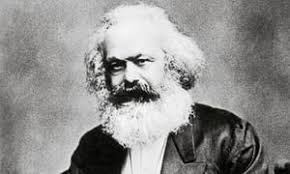
Note: Communism and socialism are treated as synonymous in this article as they were by Marx and Engels. What is today termed ‘socialism’ (free healthcare, basic income, free education, and so on) will be called ‘social-democracy’ or ‘the welfare state.’
Preface
I will never claim to be an expert on Marx—a position that, I think, is ridiculous. This series of articles on Marx, scientific socialism, and its emergence as the radical sublation of liberal philosophy (particularly German idealism) belongs to an 18-year-old student who has, not even a year ago, just obtained the right to vote and buy cigs and, more importantly, has only been reading Marx for roughly three years. My interpretation of what I’ve read has changed drastically throughout these years and will hopefully change again.
This kept in mind, my only aspiration in writing these very short, introductory articles is to invite the reader to take up Marx themselves, for I think Marx (and, really, his method of critique) is indispensable for a generation that is feeling the brunt of neoliberalism’s attack on labor, a reemerged threat of nuclear war, a crushing crisis of student debt, a continuous militarization of the police-state, a racist ‘War on Drugs’ to feed prison labor, policies of ‘never-ending war,’ global warming and its consequential disasters, a surge in mental illnesses such as depression, and an increasing threat of white supremacy against non-white people. I cannot think of an aspect of the status quo that isn’t openly decaying in front of the masses of people.
It would be unjust, then, to not clarify why the promises of the state and the ‘American Dream’ are not materializing for the overwhelming majority, and would be even more unjust to lull the struggling workers, students, and youth into a naïve hope that ‘everything will be okay in the end.’ This is the work of contemporary capitalism’s ideological apparatus; and Marxism sets itself the task to radically critique the powers-that-be’s conception of these issues.
This means, fundamentally, that Marxism is not an impartial science which any member of any class can pick up, use, and dispose of. There are no ‘Marxian’ economics, nor are there Marxian anthropologies, sociologies, philosophies, etc. Marxism is the Kritik (German for critique/criticism) of all of these fields of study, seeing them as ideology, justifications for the continued existence of capitalist production and the theoretical practices of the ruling class, viz. the capitalist class. One cannot be a Marxist while studying, say, political economy and a non-Marxist at home. To do so would mean that one’s study is half-hearted and incomplete, for the Marxist critique of political economy necessarily ties itself to certain practical conclusions, conclusions that are favorable to communism, that show its necessary origin in the self-destructive nature of capitalist production. Marxism is not a profession, but the “ruthless criticism of all that exists” (Marx, 1843) which—as we will learn—can only be from the standpoint of the wage-laboring class.
This necessary devotion to critique and method, as opposed to dogmatism and system, is personally why I feel Marxism is a worthwhile ‘weapon’ workers, students, the youth, and, in general, all oppressed groups can use to make sense of their situations and, most importantly, change it (cf. Marx’s eleventh thesis on Feuerbach). The campaign promises of politicians in bed with the rich mean absolutely nothing, a feature of the capitalist state that has become strikingly evident with the presidency of Donald Trump and his cabinet of businessmen and women. In such a time, I’ve seen struggles erupt and criticism of the status quo arise. It is, however, pertinent that this recent wave in the class struggle does not fall for past mistakes and dead ends, but takes up a ruthless critique of both the contemporary ideology and the ‘movements’ led by liberals and the middle classes, and thus locates the working-class position in all these issues—a position, Marx will argue, that is the only position “which alone can form the real basis of a higher form of society, a society in which the full and free development of every individual forms the ruling principle” (Marx, 1867).